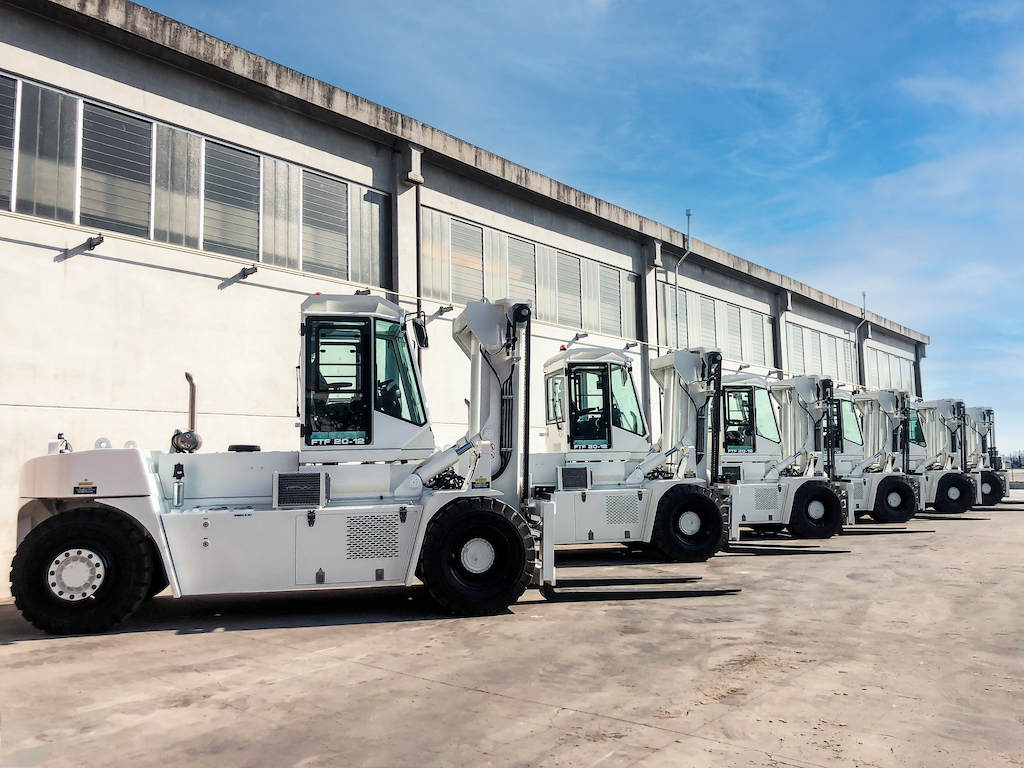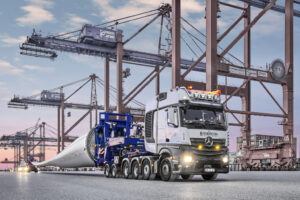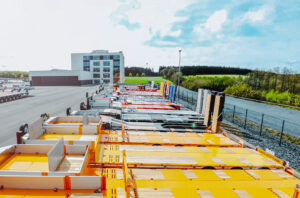Volvo Penta and FTMH (Fantuzzi Team Material Handling) have further expanded their long-standing partnership to include the development of electric forklifts, underscoring their confidence in Volvo Penta’s modularized electric platform and its comprehensive approach as a full system supplier in the field of electromobility.
FTMH, an Italian heavy equipment manufacturer, continues to collaborate closely with Volvo Penta to electrify a diverse range of forklift models. This strengthened partnership serves as yet another testament to the remarkable adaptability and modularity of the electrification platform offered by the Volvo Group, opening up new possibilities for various applications.
As part of this collaboration, a complete lineup of electric forklifts, with capacities reaching up to 52 tonnes, will be developed. The initial model to undergo electrification is the FTF 26-12, which currently relies on a Volvo Penta D8 engine. After the transformation, it will be known as the FTF 26-12 EL. The 600V electric drivetrain will be powered by a Volvo Penta battery system boasting an installed capacity of 360 kWh. To ensure optimal uptime, the machine will be compatible with high-power charging, capable of delivering rates of up to 250 kW DC. This enables a full charge to be achieved in slightly over an hour while maximizing the potential for opportunity charging during operational pauses.
Zeyd Okutan, Product Manager at Volvo Penta, emphasizes the significance of this collaboration, stating, “This partnership further highlights our dedication and recognizes the immense potential of the material handling sector. Port operations and logistic terminals are particularly suitable for electrification, and we envision great opportunities for fleets to embrace zero-emission vehicles, including forklifts, empty container handlers, reach-stackers, and terminal tractors. With well-established infrastructure and clearly defined duty-cycles, the industry’s transformation will bring about numerous benefits such as reduced noise, increased uptime, and improved productivity.”
Volvo Penta has solidified its position as one of the leading electromobility full systems suppliers within the Volvo Group, making substantial strides towards achieving its net-zero goals. The company’s solution is built upon heavy-duty components that have been developed and proven by other entities within the Volvo Group. These components are expertly packaged and installed to cater to the specific requirements of individual off-highway OEMs, benefiting from Volvo Penta’s vast knowledge and experience.
Ilenia Procicchiani, Industrial Sales Manager at Volvo Penta, highlights the challenges and resources involved in the electrification journey, explaining, “Electrification is a significant undertaking, and at Volvo Penta, we understand the efforts, knowledge, and resources that manufacturers need to invest. That’s why we closely collaborate with each customer, leveraging their expertise to adapt our purpose-built electromobility solution to meet their specific needs.”
The partnership between Volvo Penta and FTMH spans a decade, characterized by close collaboration and mutual success. FTMH has integrated Volvo Penta’s D11 diesel engines into their range of 45-tonne full-container-handling reach stackers, as well as adopting a broader range of Volvo Penta units across their general forklift series, which boasts a capacity of 15 to 52 tonnes. Eugenio Ponzini, Technical Manager at FTMH, explains that the positive and active collaboration experienced during the development of their internal combustion machines played a pivotal role in their decision to invest in and partner on this new project. Additionally, their exclusive Volvo Penta dealer in Italy, CARMI, plays a crucial role in supporting the development of what is hoped to be the first of many electric material handling machinery manufactured in Brescello.







